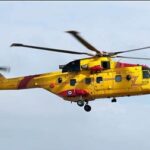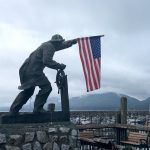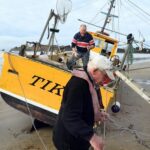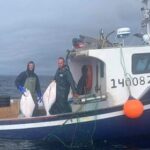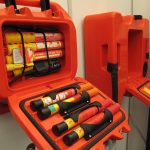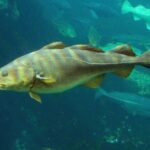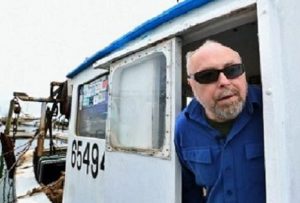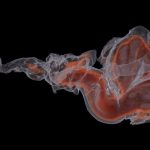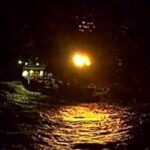Tag Archives: COVID-19
China-Australia Relations: Beijing resumes imports of Australian lobster after 4-year ban
 Australian lobsters are heading to China once again, after a 4-year absence. The industry says the removal of a trade ban by China late last year has opened the door to its biggest and most profitable export destination, just in time for the Chinese New Year. The haul on this day was a good one for Basil Lenzo and his crew. About 400 kilos of western rock lobsters. What’s even more significant for the 3rd generation fisher is that much of this catch will end up in China. In 2019, about 95% of Australia’s western rock lobsters were sent to China, which was the industry’s most profitable export market worth more than $700 million. The next year, China imposed tariffs and trade blockages on a number of Australian exports including lobsters. Video, more, >>CLICK TO READ<< 19:30
Australian lobsters are heading to China once again, after a 4-year absence. The industry says the removal of a trade ban by China late last year has opened the door to its biggest and most profitable export destination, just in time for the Chinese New Year. The haul on this day was a good one for Basil Lenzo and his crew. About 400 kilos of western rock lobsters. What’s even more significant for the 3rd generation fisher is that much of this catch will end up in China. In 2019, about 95% of Australia’s western rock lobsters were sent to China, which was the industry’s most profitable export market worth more than $700 million. The next year, China imposed tariffs and trade blockages on a number of Australian exports including lobsters. Video, more, >>CLICK TO READ<< 19:30
End of an era? Lahaina fire delivers big blow to already declining commercial fishing industry
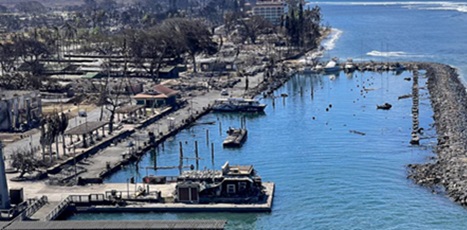 The Lahaina Small Boat Harbor was like a second home for Donnell “Andy” Tate, who for decades served as its weighmaster. But those good old days memories of the harbor for Tate, now 73, are clouded by the fire of Aug. 8, 2023, when he fled his Lahaina Shores home with only his camera gear and could only watch from a distance through a black wall of smoke as the town, the harbor, most of the boats and his life as he knew it went up in flames. The commercial fisherman and sportfishing charter operations at the harbor had suffered during COVID-19, when Lahaina became a ghost town for more than six months, forcing some fishermen out of business or to move to bluer waters. But the fire — which badly damaged the 99-slip harbor, destroyed all but 13 boats and left the nearshore waters a mess, filled with oil and debris — has been an even bigger, and perhaps more permanent blow. Photos, more, >>CLICK TO READ<< 10:02
The Lahaina Small Boat Harbor was like a second home for Donnell “Andy” Tate, who for decades served as its weighmaster. But those good old days memories of the harbor for Tate, now 73, are clouded by the fire of Aug. 8, 2023, when he fled his Lahaina Shores home with only his camera gear and could only watch from a distance through a black wall of smoke as the town, the harbor, most of the boats and his life as he knew it went up in flames. The commercial fisherman and sportfishing charter operations at the harbor had suffered during COVID-19, when Lahaina became a ghost town for more than six months, forcing some fishermen out of business or to move to bluer waters. But the fire — which badly damaged the 99-slip harbor, destroyed all but 13 boats and left the nearshore waters a mess, filled with oil and debris — has been an even bigger, and perhaps more permanent blow. Photos, more, >>CLICK TO READ<< 10:02
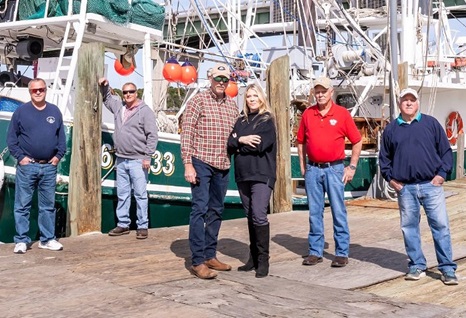
Coastal Georgia Shrimping: A new season of uncertainty, possibilities and hope
In a word, “difficult,” said Dee Kicklighter of their most recent shrimping season. Kicklighter, who has worked with Mathews for about eight years, has seen first-hand how the unpredictability of the business can be costly. “You plan for something to be one price, and then the next week you come back, and it could be potentially thousands of dollars more, depending on what you’re dealing with,” he said of fluctuating prices, including fuel. Over the years, Mathews said the ever-changing cost of fuel has taken a toll on the number of shrimpers in the industry. It’s not just Georgia shrimpers contending with the negative effects from imports. North Carolina, Texas, Louisiana, Florida and other coastal states are also feeling the friction of narrowing profit margins that threaten their way of life. Photos, more, >>click to read<< 09:15
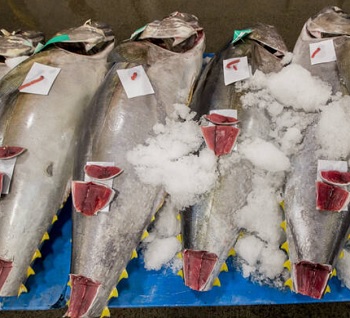
US fish landings fell 10% during first pandemic year
America’s commercial fishing industry fell 10% in catch volume and 15% in value during the first year of the COVID-19 pandemic, federal regulators said Thursday. The 2020 haul of fish was 8.4 billion pounds, while the value of that catch was $4.8 billion, officials with the National Oceanic and Atmospheric Administration said. The early months of the pandemic posed numerous challenges for the U.S. fishing industry, which has remained economically viable despite the difficult year, NOAA officials said. NOAA made the announcement as it unveiled its “Status of the Stocks” report, which provides details about the health of the nation’s commercial fishing industry. >click to read< 15:22

‘Our lobsters are gold plated now:’ Atlantic Canada lobster exports, prices soar
“Our lobsters are gold-plated now. Prices have been the highest in commercial history,” says Stewart Lamont, managing director of Tangier Lobster Co. Ltd, a live lobster exporter on Nova Scotia’s eastern shore. When the pandemic hit, export and restaurant industry demand plummeted. The shore price of lobster, the amount fishers get at the wharf from buyers, sunk as low as $4 a pound. “There was an initial glut of lobsters on the market at the start of the lockdown but then it spun back the other way,” says Colin Sproul, president of the Bay of Fundy Inshore Fishermen’s Association. >click to read< 16:47
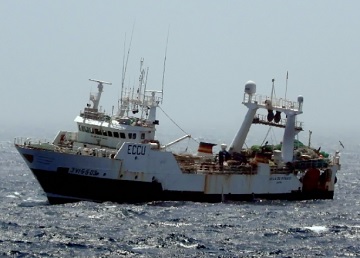
F/V Villa de Pitanxo: Repatriation of dead sailors stalled after bodies test positive for COVID-19
Some of the bodies of Spanish and Peruvian sailors who drowned in a shipwreck off Newfoundland’s coast last week are reportedly not being returned to their families right away because their corpses tested positive for COVID-19. The Spanish fishing vessel Villa de Pitanxo sank 460 kilometres off the coast of Newfoundland on Feb 15. Three fishermen were rescued and nine bodies were recovered, with 12 still missing. Four of the bodies, including two Spaniards and two Peruvians, reportedly tested positive for COVID-19 after being recovered. >click to read< 11:07
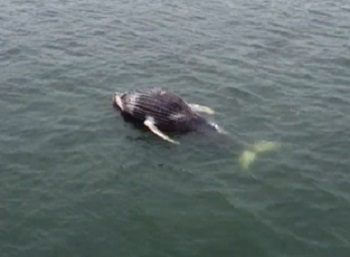
COVID-19 saves right whales by sinking cruise ships
Canada created the Shediac ship restricted zone in April 2020 just a couple weeks before Holland America’s Zaandam was scheduled to sail through that zone on a shipping lane used only seasonally by cruise ships as a shortcut to Quebec City. However, a COVID-19 no-sail order in March 2020 superseded that restriction. Consequently, there was not one Canadian ship right whale strike death in two years and only one Canadian crab entanglement death,,, Zero whales were killed by lobster gear. There has not been one death from lobster gear in the U.S. and only a couple in Canada in over 20 years but the Center for Biological Diversity, with no supporting data, claims the whales are going extinct based on lobster entanglements. >click to read< By Jim O’Connell 07:31
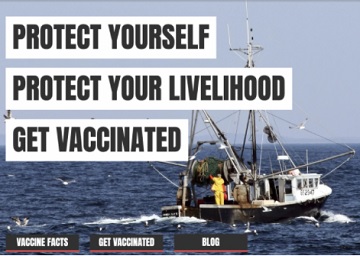
AMSEA launches ‘Catch Fish. Not COVID’
Alaska Marine Safety Education Association is making its message simple and direct: Catch Fish. Not COVID. The marine safety education entity in Sitka announced its vaccination promotion campaign on Tuesday, Sept. 28. The campaign will provide commercial fishermen with science-based information about vaccine safety and COVID-19 risks, while making the business case for commercial fishing vessel operators and their crews to get vaccinated. >click to read< 11:45
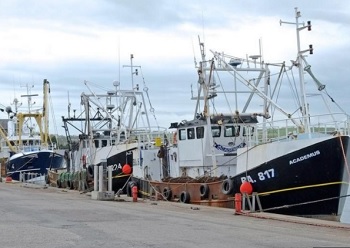
Fishing crews targeted in vaccination push
Fishing boat crews are being targeted as part of efforts to reduce Covid infection rates in south west Scotland. NHS Dumfries and Galloway said it was offering drop-in vaccination clinics to those working on boats berthed at harbours including Kirkcudbright and Stranraer. Public health consultant Dr Nigel Calvert said receiving both doses of the vaccine was the best way to protect your health. He said they were keen to offer everyone vaccination – including the crews of fishing boats coming to the area. >click to read< 10:41
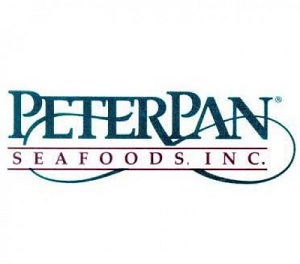
Peter Pan Seafoods to require employees to be vaccinated
A seafood processing company with operations in Alaska and Washington state will require its employees to be vaccinated,,, The policy will be enacted in tiers. The first tier includes employees at company headquarters in Bellevue, Washington; the Seattle warehouse; Alaska processing facilities in Valdez, Port Moller, Dillingham, and Alaska support centers in Dillingham, Sand Point and Naknek. >click to read< 09:54
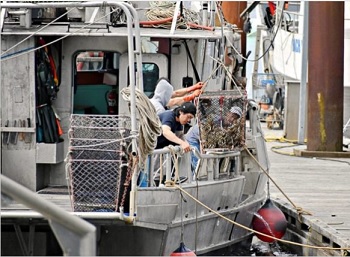
Fish Harvesters Benefit Program open for 2nd phase
Fish harvesters in the Northcoast and Haida Gwaii can now apply for the second phase of benefit payments under the Fish Harvester Benefit and Grant program, the Ministry of Fisheries and Oceans announced, on Aug. 5. This program helps eligible self-employed fish harvesters, who were not eligible for other financial relief programs, access critical support in dealing with the financial burdens of COVID-19. More than 18,000 fishers and families have accessed $130 million through the program in all provinces across Canada since its May 2020 inception. This includes self-employed commercial and freshwater fish harvesters, Indigenous harvesters with communal commercial fishing licences designated by their communities, and sharepersons crew who had less than their usual income in 2020. >click to read< 07:53
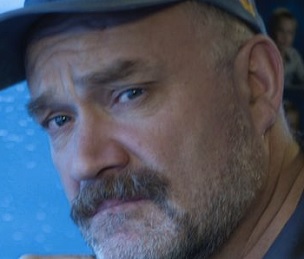
Deadliest Catch Captain Keith Colburn: “It’s a shitty job”
Deadliest Catch is already in its 15th year. The reality series about the crab fishermen on the Bering Sea near Alaska is still very popular. One of the protagonists in the Discovery series is Keith Colburn. The captain was one of the first to go to Alaska with nothing and 30 years later owns one of the largest ships: F/V Wizard.,, He can’t fish right now, because he is still struggling with the consequences of the coronavirus. “It was especially weird, “Despite corona, there was still a danger that we know all too well from the other seasons of Deadliest Catch: the sea. A huge wave hit The Wizard, damaging the iconic ship. photos, video, >click to read< 14:50
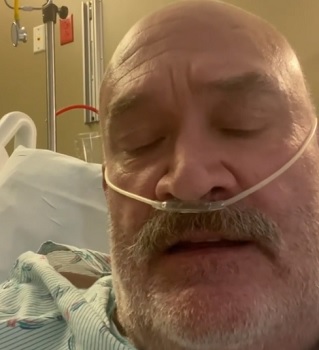
‘Deadliest Catch’ Captain Hospitalized
Captain Keith Colburn has been hospitalized with Coronavirus. Colburn announced in a video posted from his hospital room that he’d had the virus for at least 20 days. He maintains he went 10 days without needing any medication while he self-quarantined, but he still wound up needing to seek medical attention. While the virus has worked its way out of Colburn’s system, he claims he’s still dealing with its after-effects. He’s now battling a case of pneumonia as a result of his coronavirus diagnosis that’s left him in the hospital for the last eight days. Andy Hillstrand was another cast member to contract the virus, Video, >click to read< 17:44
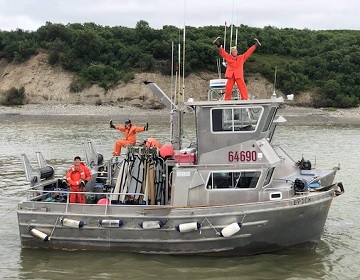
The Alaska Wilderness Prepared Me For Coronavirus
Every summer I make the long trip up to Naknek, Alaska — an outpost of human settlement among the tundra, volcanoes, and wildlife of southwestern Alaska to be part of the commercial sockeye salmon fishing season in Bristol Bay. From the airport at King Salmon, we drive the lonely stretch of pavement a half hour north, to the boatyard in which the Epick, a 32-foot-long, aluminum-hulled gillnetter that I call home for several weeks out of the year, resides through the winter. My crew and I prep the boat and put her in the water, where we make use of the abundance of daylight typical to Alaskan summers to try and catch as many salmon as possible. >click to read< 11:47
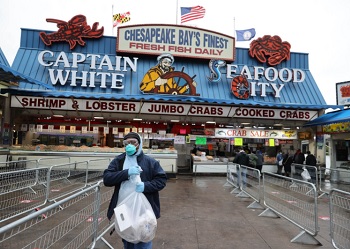
The Coronavirus pandemic could change U.S. fisheries forever. Will it be for better or for worse?!
The first symptoms appeared long before Covid-19 gained a stronghold on U.S. shores, as China went into its first lockdown and a critical export market disappeared overnight,,, Then as social distancing rules kicked in here, another major organ of the U.S. supply chain, restaurants, where most seafood purchases are made, fell limp. Many fishermen across the country have pivoted to direct-marketing models by selling their catch off their boats,,, To many in the food industry, the pandemic’s impact has exposed the fundamental vulnerabilities of a system that has long favored efficiency over resilience. >click to read< 09:48
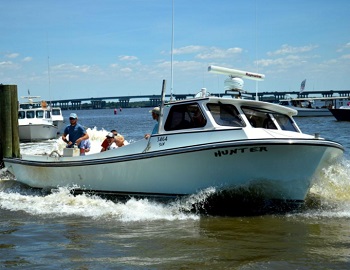
Harris, Dorchester watermen react to Executive Order workboat mask requirement
Dorchester County watermen and the Eastern Shore’s congressman are opposed to a requirement to wear masks on commercial fishing vessels. U.S. Rep. Andy Harris, R-Md.-1st, spoke out Friday, Feb. 12, against the Biden Administration’s Executive Order 13998, which requires the wearing of masks on all federal and federally regulated transportation vehicles and vessels to prevent the spread of COVID-19. He said the Coast Guard announced they will enforce this mandate that all commercial fishing vessel occupants will be required to wear masks. >click to read< 10:49
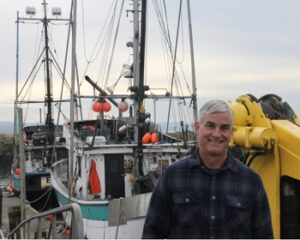
Tough times felt by renowned Port Townsend lutefisk business
Scott Kimmel, owner of Port Townsend’s New Day Fisheries, says COVID-19 has caused his lutefisk operation to take a nosedive. But the pandemic isn’t solely to blame for a downward trend,,, Lutefisk is dried cod that has been rehydrated in a lye solution before being boiled or baked,, It is perhaps more-aptly described as a traditional Scandinavian dish which either strikes mortal fear into the hearts of those who’ve known it,,, It just depends on who you ask. But as Kimmel’s lutefisk sales show, most folks these days probably fall into that former category. “Our sales have been declining for years and years just because our customers have been passing away and the younger generation’s not picking up the slack,” Kimmel said. “So, it’s a dying business, is what that is. >click to read<13:19
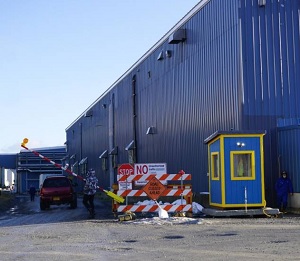
Coronavirus: Unalaska fish processing plant reopens after outbreak forces monthlong shutdown
The reopening is a bright spot for the Bering Sea fishing industry, which has been hampered by COVID-19 outbreaks at multiple boats and onshore plants. UniSea’s processing plant has a year-round workforce, and its facility handles multiple species from cod to crab. The pollock season opened Jan. 20 but the 11 boats that typically deliver their catch to UniSea have been able to hold off, That’s because the pollock fishery operates as a cooperative, where vessels have a fixed quota of fish they can catch and deliver to a specific plant. “Our fleet have been extremely supportive of our situation and patient with our reopening schedule,” Enlow said. “But they, like UniSea, are anxious to get the season started.” >click to read< 08:32
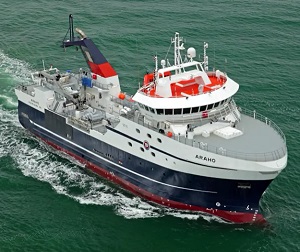
20 crew members on vessel in Dutch Harbor test positive for COVID-19 in latest seafood industry outbreak
A factory trawler joined a growing list of seafood processors and vessels in Alaska’s Aleutian Islands that have experienced COVID-19 outbreaks recently. Twenty members of the 40-member crew on the factory trawler Araho, owned by the O’Hara Corp., tested positive for the virus, the City of Unalaska said Friday. Upon arrival in Unalaska from Seattle on Wednesday night, a couple of crew members reported symptoms of COVID-19, according to Unalaska city manager Erin Reinders, who said testing began when the vessel arrived. >click to read< 19:46
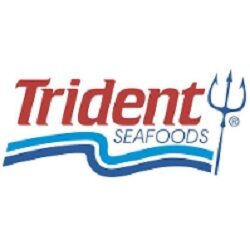
Coronavirus outbreak at Trident Seafoods Akutan plant grows to 135
A seafood plant in Akutan, Alaska, run by Trident Seafoods is facing a large COVID-19 outbreak with 135 of 307 tested employees testing positive for COVID-19, health care officials said on Tuesday morning. The Akutan plant has around 700 employees, and COVID-19 testing is still underway. Dr. Joe McLaughlin, an epidemiologist with the state, said the first report of COVID-19 at the facility was made on Jan. 17. >click to read< 09:19
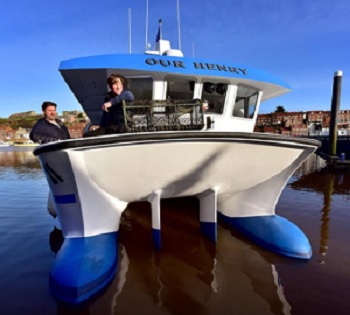
New Whitby lobster boat launches on choppy post-Brexit waters
“Our Henry” is owned by business partners Terry Pearson and Luke Russell. Mr Pearson is the merchant for the local shellfishing fleet, while Mr Russell will skipper the catamaran, the first new boat to join the Whitby fleet for a decade, along with two other crew and a trainee. Delivered a couple of weeks ago the potter has been undergoing sea trials, but should make its first fishing trip later this week. “Then with Covid, the build was delayed, and it has only just arrived when we are in the middle of the winter fishery, “Then of course there has been Brexit,,, >click to read< 16:31
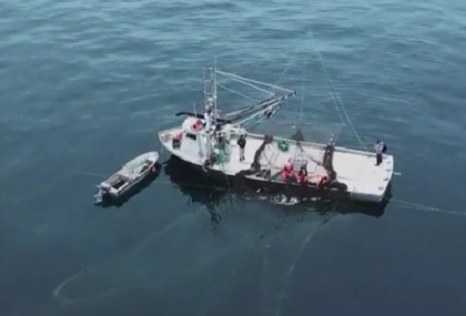
Federal Relief: Great Lakes fisheries finally get a cut of Coronavirus relief funds
After being snubbed in 2020, the folks who make their living by fishing the Great Lakes – both commercially and for sport – have been included in the latest round of federal relief from the economic ravages of COVID-19.,, Neither group was included in the massive Coronavirus Aid, Relief, and Economic Security Act that passed in March 2020, even though $300 million was specifically earmarked for U.S. fisheries.,, Getting the Great Lakes included in CRRSA was just the beginning. Now comes the harder work of figuring out how to access the money. Video, >click to read< 16:10
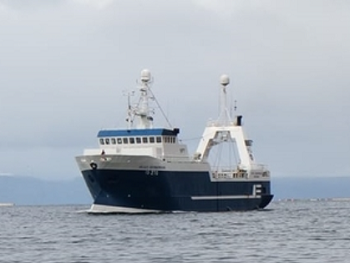
Captain’s License Revoked Following COVID-19 Outbreak at Sea
Sveinn Geir Arnarsson, captain of freezer trawler Júlíus Geirmundsson, pleaded guilty when the Westfjords Police Chief’s case against him was heard in the Westfjords District Court last week,,, Twenty-two of the vessel’s 25 crew members contracted COVID-19 while at sea last October. The ship did not return to harbour for three weeks despite the outbreak on board. >click to read< 07:50
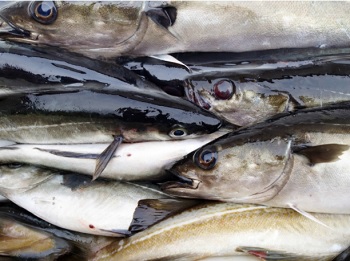
North Pacific pollock fleet preps for season after tough 2020
Skipper Kevin Ganley spent most of the summer and fall pulling a massive trawl net through the Bering Sea in a long slow search for pollock, a staple of McDonald’s fish sandwiches. The fish proved very hard to find. “We just scratched and scratched and scratched,” Ganley recalls. “It was survival mode.” Ganley’s boat is part of a fleet of largely Washington-based trawlers that have had a difficult year as they joined in North America’s largest single-species seafood harvest. >click to read< 19:28
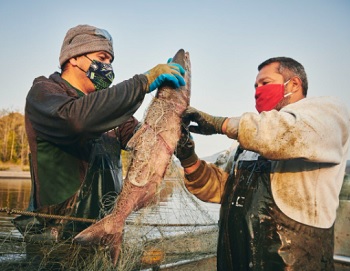
COVID-19 restaurant downturn, health risks pack double blow to tribal fishers, salmon business
On the 147-mile stretch of the Columbia from Bonneville Dam to McNary Dam, the only commercial fishing allowed is by the four Columbia Plateau tribes that signed treaties with the federal government in 1855. The treaties ensure the fishing rights of the Confederated Tribes and Bands of the Yakama Nation, the Nez Perce Tribe, the Confederated Tribes of the Umatilla Indian Reservation, and the Confederated Tribes of the Warm Springs Reservation of Oregon. Despite those treaties, dwindling salmon runs have forced the tribes to strike a delicate balance between their rights to the salmon, other commercial and recreational fishers, and protecting the environment. >click to read< 14:25
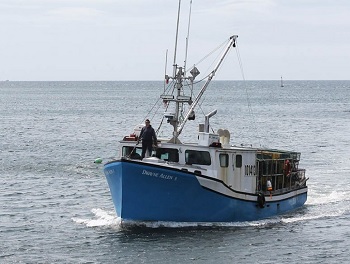
Safety on the Water Must Take Precedent
The year 2020 is nearly in the rearview mirror. Feel free to take a moment and let out a collective sigh of relief here. Who knows what 2021 has in store for us, but could it possibly be any more strange, troubling or unprecedented than the last 12 months? This past year will go down in history as one of the most turbulent for the fishery in Southwest Nova Scotia. Not only was the industry rocked by the global impacts of the COVID-19 pandemic, but the self-regulated, moderate livelihood lobster fishery by First Nations led to protests, disputes and dissention across the breadth of the Nova Scotia fishing community. >click to read< 08:45
North Pacific Pollock fishing crews on edge after a tough 2020 of small fish and COVID-19
 Skipper Kevin Ganley spent most of the summer and fall pulling a massive trawl net through the Bering Sea in a long slow search for pollock, a staple of McDonald’s fish sandwiches. The fish proved very hard to find.,,, Fishermen, for example, helped in taking bottom temperatures with equipment they brought on board their vessels. >click to read< And scientists figured out a way to roughly measure the pollock abundance through acoustic sonar mounted in three Saildrones, which are remote-controlled 20-foot boats. >click to read< 14:05
Skipper Kevin Ganley spent most of the summer and fall pulling a massive trawl net through the Bering Sea in a long slow search for pollock, a staple of McDonald’s fish sandwiches. The fish proved very hard to find.,,, Fishermen, for example, helped in taking bottom temperatures with equipment they brought on board their vessels. >click to read< And scientists figured out a way to roughly measure the pollock abundance through acoustic sonar mounted in three Saildrones, which are remote-controlled 20-foot boats. >click to read< 14:05
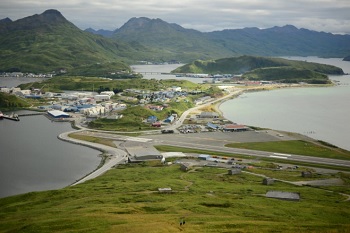
Crew Of O’Hara Corporation Trawler And Community Member Test Positive For Coronavirus
Unalaska reported 10 new cases of COVID-19 on Monday. All but one is among the crew of the F/T Enterprise, a trawler. The infected crew members are in isolation in Unalaska’s quarantine facility and are being monitored by staff from Iliuliuk Family and Health Services, City Manager Erin Reinders said. Contact tracing is underway. “The O’Hara Corporation is greatly concerned by the recent positive COVID test results on board the F/T Enterprise,”,, “Our primary concern is the health of our crew and preventing impacts to the community of Unalaska.” The tenth case the city reported Monday is an Unalaska resident. >click to read< 17:57
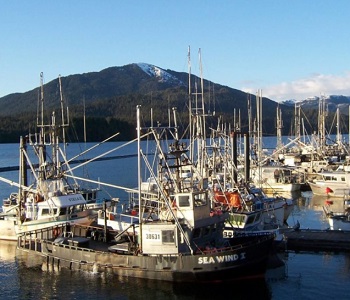
B.C.’s commercial halibut season extended three weeks due to pandemic caused market disruptions
Fisheries and Oceans Canada (DFO) said the closure, normally scheduled for Nov. 15, will now fall on Dec. 7 for the 2020 season. All groundfish hook-and-line harvesters wanting to participate in the extended halibut season will need to have the conditions of their licence amended prior to fishing past the original November closure. Additional sector-specific instructions on how to request the amendment will be forthcoming,, Meanwhile, costs to harvest, process and ship products have escalated as the sector tries to meet COVID-19 safety protocols. >click to read< 20:53
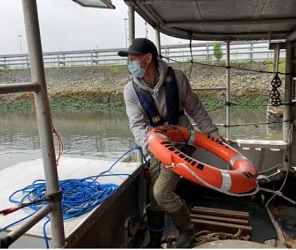
British Columbia – Crew Safety Training – Prepare And Protect your Crew from Coronavirus
WorkSafeBC and Transport Canada regulations set a high standard for training where emphasis is placed upon ensuring that both operational and emergency training occurs before work begins. In addition to this, COVID-19 has created new requirements for vessel owners and masters as they are now responsible for training crew on the vessel-specific protocols that are designed to protect the health of crew and the communities they interact with while fishing. >click to read< 13:45

































